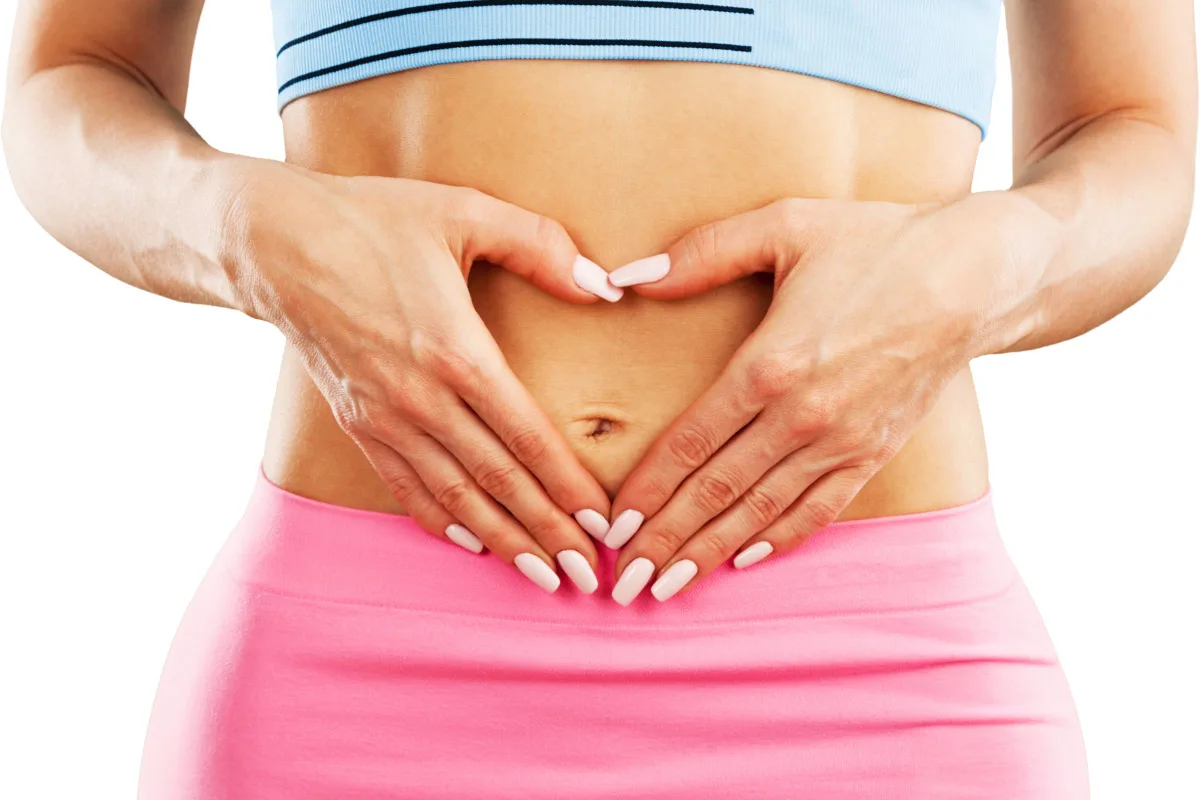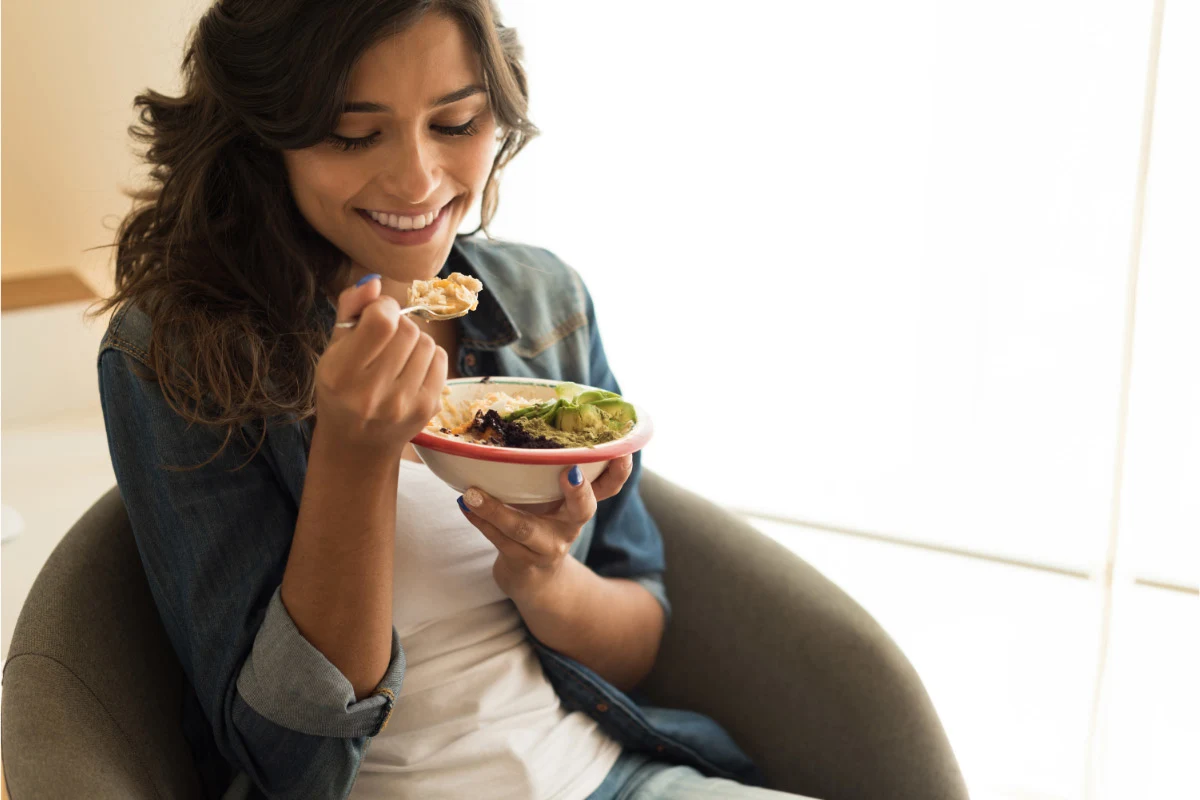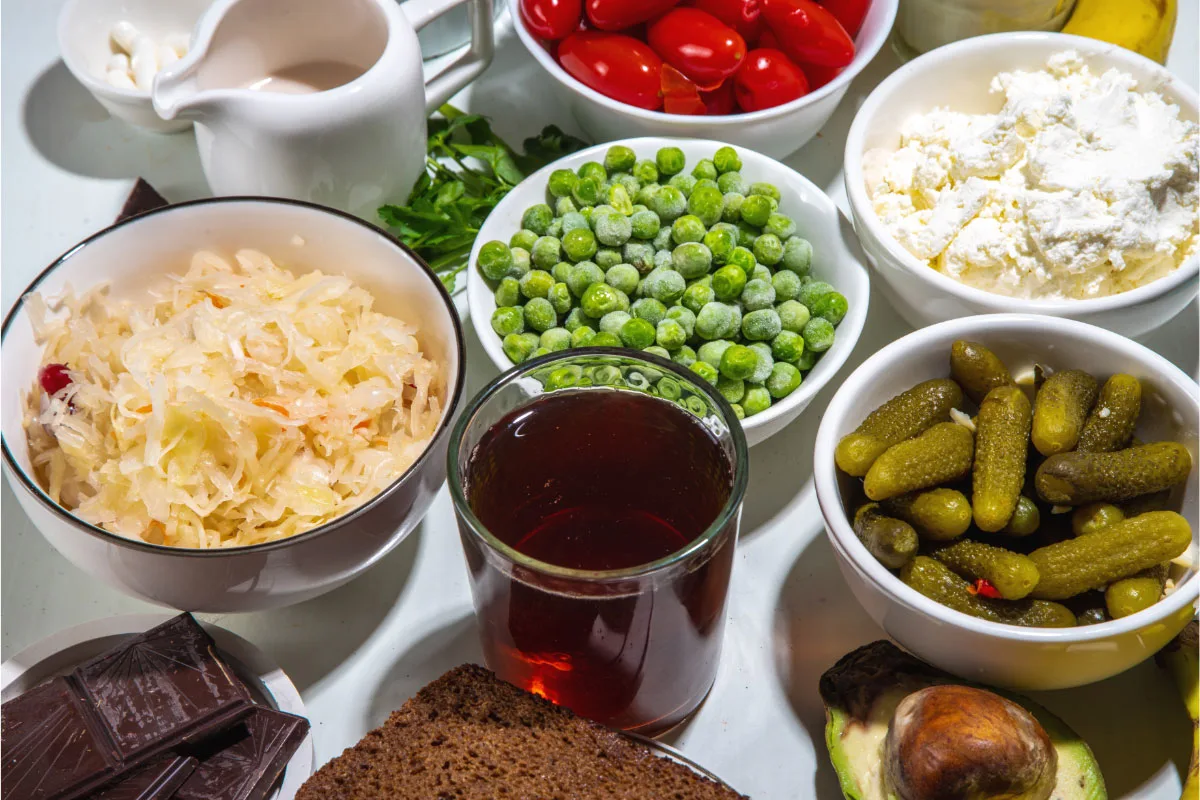The good news is that yes, probiotics can be vegan!
However, you do need to be careful where you get them from if you are serious about sticking to the vegan lifestyle.
This article will discuss how to make sure you get only vegan probiotics.
Jump to:
- So what are probiotics and are they suitable for vegans?
- How do probiotics work?
- Probiotic bacteria types
- Are probiotics vegan?
- Are probiotics vegan even though they’re “alive”?
- Probiotics’ impact on digestive health
- That means some probiotics are suitable for vegans!
- Are they all the same?
- How to add probiotics to your diet?
- What does being a vegan entail?
- Why go vegan?
- Benefits of a vegan diet
- Is it just food?
- Vegan Probiotics FAQs

So what are probiotics and are they suitable for vegans?
I find myself thinking about my tummy quite a lot!! And as I eat vegan more often than not (and ALWAYS vegetarian), I want to know what is and isn’t acceptable.
We frequently hear about the significance of gut health when it comes to sustaining good health. Additionally, as more individuals adopt vegan diets, the relevance of the subject of how probiotics integrate into this way of life is growing.
How do probiotics work?
Live microorganisms called probiotics are intended to support the balance of good bacteria in our digestive systems.
These living organisms, often known as “friendly” or “good” bacteria, are present in a range of probiotic goods, including yogurt made with dairy, sourdough bread, miso soup, and kombucha tea.
Probiotic bacteria types
Probiotic bacteria come in a wide variety of forms, the most common of which are lactobacillus and bifidobacterium strains. These bacteria are essential for maintaining the digestive tract’s health and aiding in the defense against harmful or “bad” bacteria.
Probiotics not only aid in digestion but also supply vitamins C and B, boost immunity, and even function as a second “brain,” according to some research.
Are probiotics vegan?
Despite the fact that many dairy products include probiotics, thankfully not all probiotics are dairy-based. In reality, an increasing number of probiotics and supplements made from plants that are vegan use lactobacillus strains.
These bacterial strains can also be found in fermented plant-based beverages like kombucha tea and a variety of plant-based meals including miso, tempeh, and other fermented soy products.
Are probiotics vegan even though they’re “alive”?
As bacteria, we can’t really consider probiotics as living creatures. We have to draw a line somewhere – we are covered in trillions of microorganisms after all.
So yes, probiotics can be vegan despite the fact they’re live bacteria.
Probiotics’ impact on digestive health

The billions of good and bad bacteria in the human body must be kept in a balanced ratio in our digestive systems to ensure good health.
By encouraging the growth of beneficial bacteria, probiotics aid in maintaining the digestive system’s health and functionality.
Probiotics not only help our digestive health but also our immune system, supply vitamins C and B, and even work as a second “brain,” according to some research.
That means some probiotics are suitable for vegans!
Although certain probiotics can be found in dairy products, several vegan supplements and plant-based probiotics are now available that contain lactobacillus strains and are acceptable for people who follow a vegan diet.
Probiotics can significantly contribute to maintaining excellent gut health, which is essential for general health and well-being.
Incorporating probiotics into your diet is a fantastic way to assist your digestive system and enhance your general health, whether you’re a vegan or not.
Are they all the same?
The fact that not all probiotic products are made equally must be noted. It’s crucial to pick a vegan probiotic supplement that has a lot of live bacteria and different probiotic strains while searching for one.
Others may have various strains of bacteria, including lactobacillus, bifidobacterium, and other kinds of bacteria that are good for gut health.
Some vegan probiotic supplements might only contain one or two strains of bacteria.
Furthermore, it’s critical to pick a probiotic supplement that is formulated with premium plant-based components and that has undergone potency and purity testing.
Choose a product that has undergone independent testing to confirm that it contains probiotics and is devoid of hazardous fillers, preservatives, and other chemicals.
How to add probiotics to your diet?
No matter if you eat a vegan diet or not, adding probiotics to your diet is simple. Fermented soy products like miso and tempeh, fermented plant-based beverages like kombucha tea, and even sourdough bread are examples of plant-based sources of probiotics.
Another choice is to incorporate a vegan probiotic supplement into your daily regimen, either in the form of a liquid probiotic or a probiotic capsule.
In conclusion, gut health is important for general health and well-being, and using probiotics regularly can help you reach this objective.
There are several plant-based probiotic choices available that can assist your digestive system and enhance your general health, whether or not you eat a vegan diet. Why not try them out for yourself so that you can judge the difference?
What does being a vegan entail?

Being vegan means forgoing the use of any animal products, whether they are used for food, clothing, or other purposes.
This choice is frequently motivated by a strong commitment to animal rights, environmental preservation, or the pursuit of a healthier, more sustainable lifestyle.
The main goal of veganism is to lessen harm to animals and the environment through ethical consumption. Vegans abstain from eating any meat, dairy, eggs, or other items derived from animals.
They also refrain from wearing garments made of silk, wool, leather, or other materials that were once used to cover an animal’s skin or fur.
Why go vegan?
To stop animal suffering is one of the key motivations for adopting a vegan lifestyle. Vegans contend that people have a duty to treat all living things with kindness and respect and that animals have a right to a life free from exploitation and abuse.
That is the biggest reason for me personally.
So, this means they abstain from eating meat and dairy products, which are frequently made using cruel methods including factory farming, close confinement, and animal research.
Many people decide to become vegans for health reasons in addition to ethical ones.
Benefits of a vegan diet
The body can obtain all the nutrients it needs from a well-planned vegan diet, and it may even provide certain health advantages, such as a reduced risk of heart disease, type 2 diabetes, and some cancers.
Vegan diets are frequently low in saturated fat and cholesterol and strong in fiber, phytochemicals, and antioxidants.
Additionally, going vegan can benefit the earth. A significant source of greenhouse gas emissions, deforestation, water pollution, and soil deterioration is animal husbandry.
Vegans can lessen their personal environmental impact and support more ecologically friendly and sustainable food systems by consuming fewer or no animal products.
If you want to learn even more about vegan food find out whether energy drinks are vegan, Mission flour tortillas are vegan or Maruchan ramen noodles are vegan.
Is it just food?

Being vegan, though, involves more than just what you eat and don’t eat. It also has to do with the decisions you make and how you conduct your life.
Many vegans make decisions to limit their impact on the environment, including using eco-friendly items, minimizing waste, and supporting sustainable business practices.
A political statement can also be made by leading a vegan lifestyle. Vegans are standing up against these behaviours and promoting a more equitable and compassionate world by making the decision to not support businesses that exploit animals and the environment.
In summary, being a vegan involves much more than simply your diet. It’s a way of life that entails a dedication to minimizing cruelty to animals, fostering environmental sustainability, and leading a fit and conscious lifestyle.
Being vegan is a potent way to live with purpose and change the world, whether your motivation is based on ethical reasons, health issues, or a desire to have a positive impact on the world.
Vegan Probiotics FAQs
For vegans, fermented foods including miso, tempeh, sauerkraut, kimchi, and non-dairy yogurt are the finest sources of probiotics. There are also supplements created with plant-based components like yeast or algae.
Like everyone else, vegans might benefit from probiotics. A healthy balance of gut flora is essential for overall health and can support a strong immune system. Probiotics assist in maintaining this equilibrium.
While some non-vegan probiotics may contain dairy or other components obtained from animals, vegan probiotics are produced without the use of any animal products. Vegan probiotics are often produced using yeast or algae, which are plant-based sources.
Yes, vegans can acquire their daily dose of probiotics by using plant-based supplements. These probiotics are an excellent choice for vegans because they are produced using plant-based materials like yeast or algae.
Probiotics have a variety of health advantages for vegans, including better digestion, a stronger immune system, and a lower risk of contracting certain diseases.
Vegan probiotics can be equally as effective as non-vegan ones, however the effectiveness depends on the particular strain and dosage. The best course of action when selecting a probiotic supplement is to speak with a healthcare provider.
By assisting in the maintenance of a healthy balance of gut flora, which is crucial for overall health and can enhance the digestion of plant-based foods, probiotics can complement a vegan diet.
There are vegan probiotics made expressly with intestinal health in mind. Bifidobacterium bifidum and Lactobacillus acidophilus are two common strains.
Vegans can receive a little amount of probiotics through their diet, but it might be difficult to ingest enough of the healthy bacteria to experience any real advantages. To make sure they get adequate probiotics, vegans may find supplements to be a useful alternative.
Vegans should choose probiotics derived from plant-based sources, such as yeast or algae, when making their selection.
Additionally, it’s critical to pick a product that contains a lot of living cultures and to read the label carefully for any potential allergies or other components that could not be suitable for a vegan diet.
So please, always check the label carefully!
BOTTOM LINE: vegan probiotics are readily available. They can be included in a diet through the foods listed above, as well as being possible to purchase through health stores. But always check the label carefully to make sure the contents are vegan!
Also, check out the best bell pepper alternatives and scallion substitutes if you’re interested in learning more about similar ingredients.
